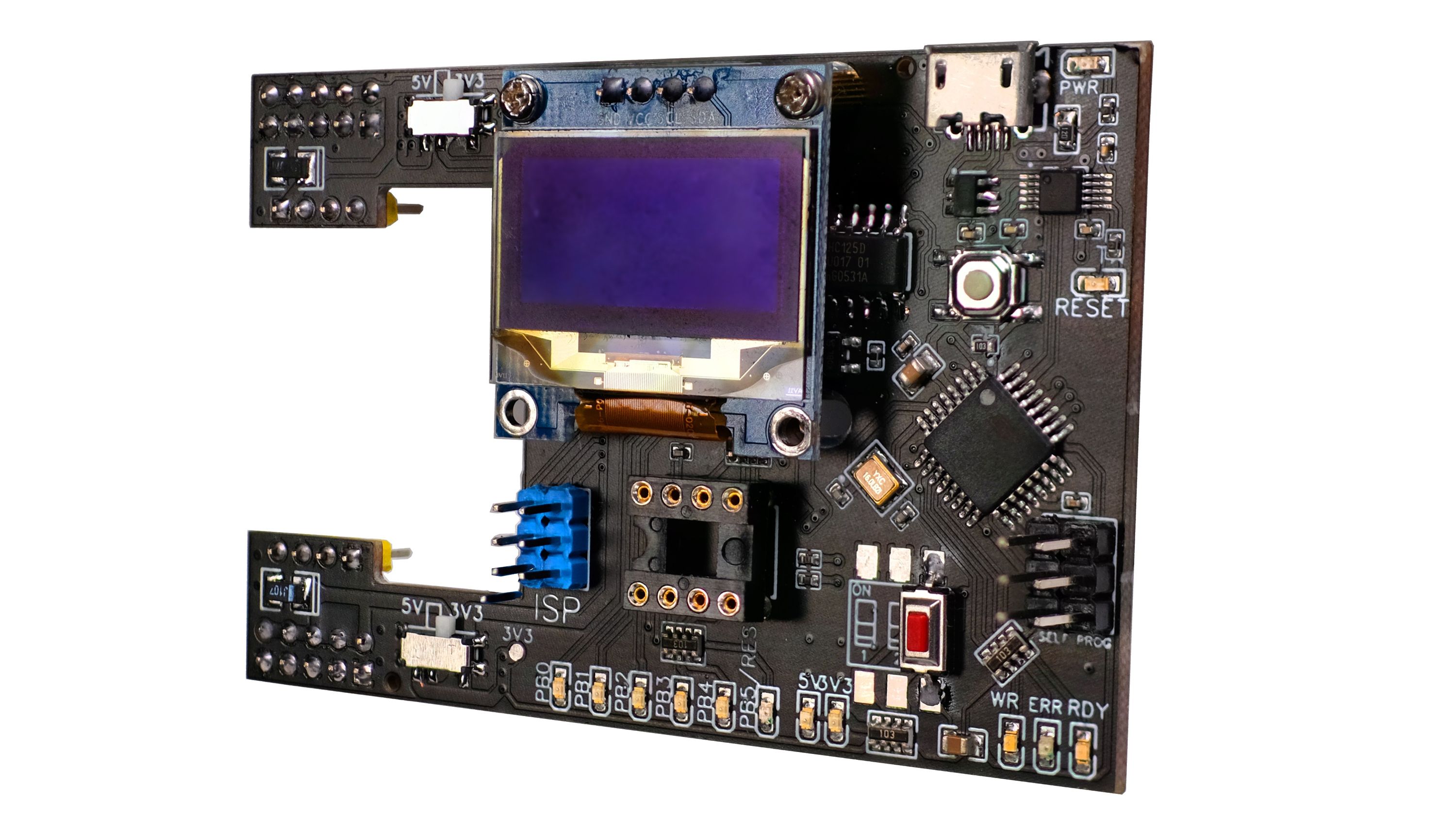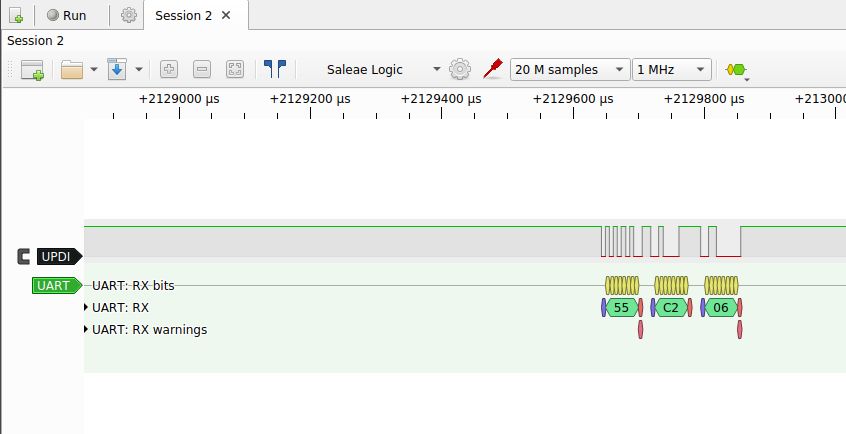Project update 5 of 7
Experimenting With Newer Protocols (and Lower Funding Goals!)
by AndriyReduced Funding Goal
I am committed to getting ATtiny Flasher out into the world, so—in consultation with Crowd Supply—I’ve decided to reduce the campaign’s funding goal to the true bare minimum of $3,000. Which means that, as of today, our campaign has funded! Thank you all for your support, and know that I am working hard to get your ATtiny Flasher out the door and on its way to your workbench!
UPDI Protocol Development
As I’ve mentioned before, I’m really keen to support UPDI on ATtiny Flasher, which would allow it to work with newer members of the ATtiny family, some of which now have more peripherals than some classic ATmegas. STK2UPDI and jtag2updi should do the trick, but I’m currently struggling to make it all work properly. ATtiny Flasher seems to spits out the necessary commands, but the MCU does not yet respond. I’m using ATtiny412 for testing. It has a UPDI pin combined with GPIO function, so it’s possible that the latter is interfering with communication. At any rate, it’s something I still need to figure out!
ATmega32u4 Swap Considerations
One issue I encountered while investigating the TPI and UPDI protocols is pushing me toward a host-MCU replacement. You see, the upload method that ATtiny Flasher currently uses is STK500 v1, which is a serial protocol that does not support TPI or UPDI. Most (though not all) modern protocols use USB communication instead of serial, and it is technically possible to do so with ATMegaX8 chips. (USBASP is an example). This technique is a bit hacky, though, and not particularly stable unless it’s the sole function of the tool. ATmega32u4, on the other hand, has native USB support. It is slightly more expensive, but it wouldn’t require the CH340 serial-bridge chip, which would help offset the increased price. I’m still considering th pros and cons of this revision, as swapping out the MCU might cause some delays by triggering a new round of bug-fixes.
Production Plans
During the testing of ATtiny Flasher I found that one PCB behaves really weirdly. I am only able to flash it successfully every second time, at best, which has me thinking that I should either develop a test jig or test the boards myself, which probably makes more sense for a small-volume manufacturing run.





